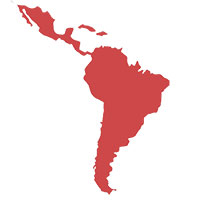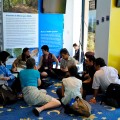China Steps Up: Day 7* at COP16
Tim Hall | December 8, 2010.
All talk has been with China today, with its offering to tie its voluntary carbon emissions reductions to a binding UN resolution.
It came as a surprise to many, and was a much better start to the week compared to last Monday where Japan refuted any progress on Kyoto.
It is a compromise that China hopes will encourage developed countries to continue the existing Kyoto Protocol.
It appears to be real leadership from the 21st Century superpower. I’ve attended a number of side events on China, and this move only seems to reflect where China has been going since Copenhagen COP15.
China is no longer appeasing climate change, and is mobilizing at a rate that only China can, to act on emissions.
One optimistic attendee at the conference said reflects Europe’s moves in the early days of environmentalism. After active participation in the world’s first major international environmental summit in Stockholm, 1972, Europe’s acceptance of the summit’s (non-binding) outcomes allowed for accelerated domestic action. This early adoption may be indicative of their position as environmental leaders today.
A position China wants to be in tomorrow.
While China’s moves put developed nations such as the US to shame, it also furthers China’s standing as a legitimate world power – not just economically or politically, but now environmentally.
And that’s one area where the US is well behind on.
In other news from the day, negotiations continued on details and texts.
Meanwhile Bolivia raised a few eyebrows by declaring that the policies of rich nations were causing worldwide genocide.
It declared that 300,000 people are year are dying just through natural disasters resulting from climate change alone.
Ministers continued to arrive, but the EU dampened hopes by declaring that texts weren’t ready and “too-complicated” for big decisions to be made this week by ministers.
Finally Wikileaks made it to Cancun, after stealing COP16’s limelight around the world last week, it’s now drawing attention within the conference away from negotiations. Instead the talk is back on Copenhagen and its aftermath, and the new information regarding motivations and views from both developed and developing nations on financing.
*Apparently at 11pm Saturday it was decided that Sunday would not be a day of rest, barely anyone knew that though – well at least I didn’t – so I’ll just continue with day numbers as planned. An informal plenary was held on Sunday and many people here, delegates and observers, are beginning to feel the effects of the non-stop work.
By Tim Hall, photo via the UNFCCC.













comment